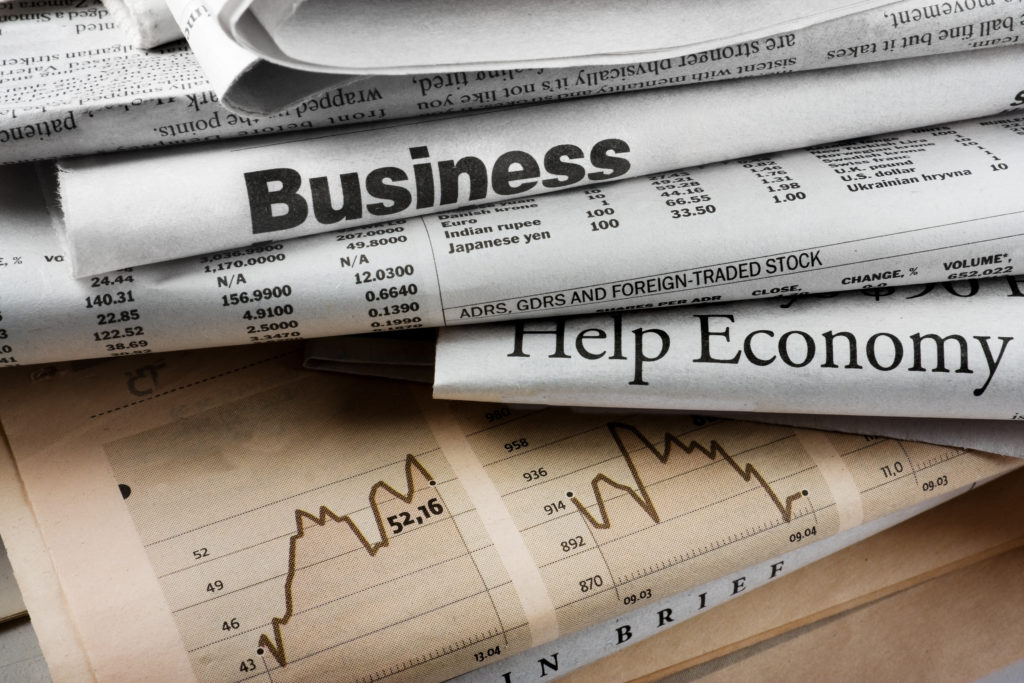Brazil pulpmaker Klabin aims to reduce greenhouse gas emissions 25% by 2025

Brazilian pulpmaker Klabin (KLBN4.SA) has committed to reducing greenhouse gas emissions per tonne of pulp paper and packaging produced by 25% by 2025 and by 49% by 2035, a securities filing showed on Thursday.
Via Reuters
SAO PAULO, May 26 (Reuters) – AliExpress, the global e-commerce platform of Chinese giant Alibaba Group Holding Ltd , aims to increase its Brazil sales by offering “live commerce,” financial services and registering local sellers in its marketplace, its Brazilian head told Reuters on Wednesday.
With Brazil sales growth of around 130% in 2020, the shopping portal wants to use these initiatives to deepen its links with customers in Brazil, which has become one of the five largest AliExpress markets in sales in the world, Yan Di said.
By Aluisio Alves via Yahoo Finance
The year 2020 was the best ever for Brazilian pig sector in terms of production, international trade and domestic consumption.
That became clear in a report that was recently published by the Brazilian Animal Protein Association (ABPA); the figures are summed up in Table 1.
By Daniel Azevedo via Pig Progress
Brazil’s Petrobras (PETR4.SA) said on Monday in a securities filing that it will invest $300 million through 2025 to improve the efficiency of its refineries, an initiative the company is calling RefTOP.
Via Reuters
Brazilian airline Gol Linhas Aereas (GOLL4.SA) said there was an improvement in domestic ticket sales in May, driven by advances in Brazil’s COVID-19 vaccination program.
“The rise in ticket sales in May, combined with other initiatives, are paving the way for significant improvements in this recovery phase,” Gol said on Wednesday in a securities filing.
By Reuters
Brazil’s central bank has launched the general guidelines for the digitization of its currency, the real.
The announcement on the intentions to create a Central Bank Digital Currency (CBDC) made today (24) is part of the central bank’s agenda for the modernization of the Brazilian payments industry, which included the launch of instant payments last November and the ongoing implementation of open banking.
By Angelica Mari via ZD Net
Mining conglomerate Vale is set to begin construction of 766MW photovoltaic project in Brazil later this year and has chosen Nextracker to supply smart solar trackers for it.
The Sol de Cerrado solar project in Minas Gerais, will be one of the largest in the country when operational in 2022.
Via ReNews.Biz
A consortium of Canada’s Enbridge (ENB.TO), Belgium’s Fluxys (FLUX.BR) and U.S. private equity firm EIG Global Energy Partners has submitted a non-binding offer for Brazil’s largest natural gas import pipeline, three people with knowledge of the matter told Reuters this week.
Petroleo Brasileiro SA (PETR4.SA), as Brazil’s state-run oil company is formally known, put its stakes in the 2,593-kilometer (1,611-mile) TBG pipeline, which imports gas from Bolivia, and the far southern TSB pipeline up for sale in December. Non-binding offers were due by late April.
By Carolina Mandl, Sabrina Valle and Gram Slattery via Reuters
O crédito ao consumo no Brasil é diferenciado pelo envolvimento direto e a participação das empresas varejistas na sua concessão, tornando o País um benchmarking global nesse aspecto.
Na Via, antiga Via Varejo, que opera Casas Bahia e Ponto, ex-Ponto Frio, são 95 milhões de crediaristas na base. Na Riachuelo, são mais de 32 milhões possuidores de seu cartão de crédito, bandeira própria, que respondem por perto de 42% de sua venda total. Carrefour, Pão de Açúcar, C&A, Pernambucanas, Renner, Marisa e Americanas, para citar apenas algumas, também têm alta representatividade em suas vendas dos clientes de seu crédito, tradicional ou via cartão com bandeira própria em seus negócios.
By Marcos Gouvêa de Souza via Mercado & Consumo
SAO PAULO (Reuters) -Brazilian financial social media platform TradersClub is seeking a 3 billion real ($565.65 million) valuation in its initial public offering, two sources with knowledge of the matter said.
The company filed late on Wednesday for an IPO to raise around 700 million reais to fund expansion and potential acquisitions, the people added, asking for anonymity to disclose private discussions.
By Tatiana Bautzer via Yahoo Finance
Brazil is determined that Mercosur’s Common External Tariff, TEC, be reduced by 20% in two rounds of unilateral cuts, 10% immediately, and the other 10% in December. This is the official strategy and position of Brazil for the extraordinary meeting in June of the four founding members of the group, in Buenos Aires, underlined Lucas Ferraz, foreign trade secretary of the Brazilian Ministry of the economy.
According to Mercosur rules all decisions must be adopted by consensus, which means that the TEC has become a contentious issue between the two main partners Brazil, and Argentina, which is reluctant to advance so fast or take such bold steps.
Via Merco Press
May 19 (Renewables Now) – Brazil’s power sector regulator Aneel approved on Tuesday the price ceilings for the power generation auctions scheduled for June 25, 2021.
Dubbed A-3 and A-4, the tenders will contract power from wind, solar, hydro and biomass-based thermal plants. The highest maximum bidding price is set at BRL 292 (USD 55.5/EUR 45.4) per MWh.
By Lucas Morais via Renewables Now
Since he first took office in 2019, Brazil’s president, Jair Bolsonaro, has prioritized transforming the country’s logistics network for transporting domestic goods. Historically highway-centric, the shipping of goods around the country by truck is a major source of congestion and carbon dioxide pollution. In the next few weeks, the Brazilian Congress looks set to approve a bill that will encourage the transportation of goods by sea. But the bill has environmentalists, and even some government employees, alarmed as it does little to address the potential impacts on marine ecosystems that would result from a sharp increase in shipping.
By Eduardo Campos Lima via Hakai Magazine
The rising prices of raw materials, such as soybeans and iron ore, will likely benefit Brazil for at least the next two years. Although it is too early to predict the size of this new cycle, the perception of analysts interviewed by Folha is that it will be less intense than the commodity boom of the 2000s.
Commodity prices using the CRB (Commodity Research Bureau) index rose by almost 70% in one year. In the same period, metallic commodities tripled in price in the international market, mainly in iron ore (+ 150%), and agricultural products have already emerged from a longer appreciation, mainly from soy.
By Douglas Gavras via Folha de S. Paulo
The full enforcement of WhatsApp’s new privacy policy has been delayed in Brazil as local authorities investigate the data privacy implications to users of the app’s new rules.
The decision follows a series of discussions between the owner of the messaging app Facebook and Brazil’s National Data Protection Authority (ANPD), national consumer body Senacon, the Federal Prosecution Service and competition watchdog Cade. Under the agreement, WhatsApp users will still be able to utilize the service and all its features for three months before agreeing to the new policy.
By Angelica Maria via ZD Net
Brazil is on track to sell the largest volume of soybeans to the United States since 2014, according to shipping data from maritime agent Cargonave, as the nation helps Americans fill a momentary supply gap. Increased shipments to the United States show that tight supplies and high prices are forcing soybean users like oilseed crushers and meat producers to change their suppliers to keep operations running. A total of 208,000 tonnes of Brazil soybeans have been shipped to the United States or will set sail soon, according to shipping data and a source.
By Ana Mano via Hellenic Shipping News
In December 2020 the Brazilian Ministry of Mines and Energy issued the Brazilian National Energy Plan 2050 (“2050 Energy Plan”), outlining the directives for the long-term strategy for the Brazilian energy sector. The 2050 Energy Plan dedicated a chapter to hydrogen, listing it as a disruptive technology, capable of significantly changing the energy market.
The 2050 Energy Plan highlights that hydrogen may help solving energy challenges such as reduction of carbon emissions in hard-to-decarbonize sectors, storage of renewables, safety in the energy supply due to the flexibility in hydrogen production (multiple sources) and diversity in its use cases (direct or converted into electricity). The 2050 Energy Plan also listed fuel cells as a potential key technology for the decarbonisation of the transportation sector in Brazil going forward.
By Danielle Gomes de A. Valois via Lexology
Brazil’s Senate on Thursday approved a bill that would forbid drug makers from raising prices in 2021, as the country battles the world’s second-deadliest pandemic after the United States.
Via Reuters
Join our member’s, Greenspoon Marder, at their Innovation Week, bringing together top companies and thought leaders across industry lines. With a focus on changes, challenges and opportunities businesses are facing across the globe, hear from those who are innovating and evolving and leave with ideas for your own new course of success.
Brazilian public and private sector actors have announced the launch of a 240 million reais ($45 million) venture capital fund focused on early stage investments in companies active in the Internet of Things (IoT) and connectivity space.
Managed by Indicator Capital, the fund was created by the Brazilian Development Fund (BNDES) and Qualcomm Ventures following a tendering process in 2019 to find a company to structure and run the vehicle. The fund will support up to 30 startups in Series A rounds over the next 10 years and it expects to close 7 deals in 2021.
By Angelica Mari via ZD Net
Oracle on Wednesday announced that its second Brazilian cloud region is live in Vinhedo, a city in the state of Sao Paolo. With this launch, Oracle’s Gen2 Cloud will be available in 30 locations. The tech giant is on track to have a total of 38 cloud regions up and running by the end of this year.
The new region makes Oracle the only cloud provider with two regions in Brazil. Oracle has had a presence in Brazil since last year, when it launched its first Sao Paulo region.
By Stephanie Condon via ZD Net
Brazil’s arabica harvest kicked off symbolically this weekend with volunteers picking through one of the world’s largest urban coffee farms at Sao Paulo’s Instituto Biológico, a hub of agricultural research in the middle of the metropolis.
In the shadow of the institute’s towering art-deco headquarters, the group worked its way through neat rows of 2,000 trees, marveling at the pastoral scene just a stone’s throw from the city’s central Ibirapuera Park.
By Amanda Perobelli via Reuters
BRASILIA (Reuters) – Brazil’s Health Ministry on Tuesday announced it had signed a deal for Pfizer to deliver an additional 100 million doses of its COVID-19 vaccine, doubling the number of shots from the company.
The additional shots will be delivered between September and December, the Health Ministry said in a statement.
By Ricardo Brito via 790 KFGO


No primeiro dia do evento o tema será voltado à mentalidade empreendedora e quais as atitudes ideais para manter as portas abertas do seu negócio e atrair mais clientes, considerando os pilares: missão, visão e propósito.
No segundo dia do evento o tema será sobre como reconstruir seu negócio e fazê-lo prosperar em meio à crise, conquistando a confiança do cliente e se organizando financeiramente.
#SeminarioEmpreendorismoFeminino #debatesvirtuais #mulheresbrasileiras
#GrupoMulheresdoBrasilNY #GrupoMulheresdoBrasil #ConsuladoBrasileirodeNY #empreendedorismofeminino #webinar
Transmissão: Canal do YouTube Grupo Mulheres do Brasil
For all the criticism Brazil has endured over its stewardship of the Amazon, it can still boast of its climate credentials in the field of clean energy.
Hydropower has long provided most of the country’s electricity, thanks to the construction of large-scale dams and reservoirs, in particular under the ruling military dictatorship of the 1960s.
By Michael Pooler via Financial Times
In an attempt to reduce reinjections of natural gas back into wells at production sites, the Brazilian government has created new rules to facilitate the development of gas-fired power plants, with the start of dispatch set for 2026.
Natural gas reinjection takes place when producers inject gas back into the well in order to increase the flow of crude oil from the well, or else sequester gas that cannot be exported. The practice is common among oil producers in Brazil, as the country does not have sufficient natural gas transportation or processing capacity available, as well as little demand for gas-fired power.
By Flávia Pierry via Argus Media
The Brazilian airline Azul Linhas Aereas ended the first quarter with 109% of its domestic capacity than its pre-pandemic levels. While Azul still posted a net loss of US$509 million, the airline seems to be on track for a recovery, surpassing its domestic peers, GOL and LATAM Brazil. But, how has Azul achieved this bounceback? Let’s investigate further.
Azul is a point-to-point airline. It doesn’t have a true hub, like GOL or LATAM. These last two airlines mainly fly from Sao Paulo’s Guarulhos International Airport, the gateway of Brazil. Meanwhile, Azul flies out of everywhere.
By Daniel Martínez Garbuno via Simple Flying
Brazil’s real surged on Thursday to close at its highest in almost four months against the dollar, a day after the central bank struck a hawkish tone in its statement that accompanied a second aggressive hike in borrowing costs.
A clutch of major global banks published notes revising their outlook on Brazil’s benchmark Selic rate, which they say is now likely to rise more quickly or more aggressively.
By Jamie McGeever via Reuters
Read full article here
BRASILIA, April 29 (Reuters) – A broad measure of Brazilian consumer and business default ratios held steady in March at a multi-year low of 2.9%, while bank lending spreads narrowed to 22.5 percentage points from 22.9 points in February, the central bank said on Thursday.
By Jamie McGeever via Nasdaq